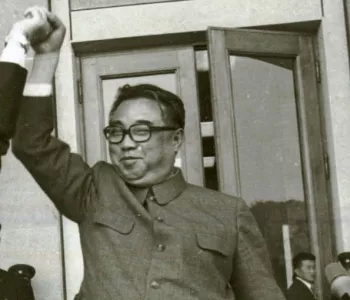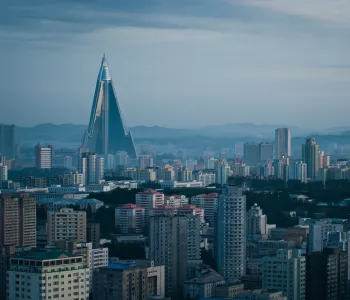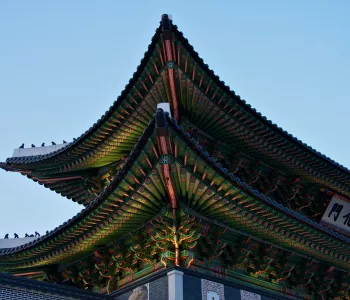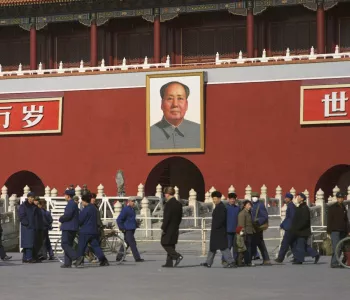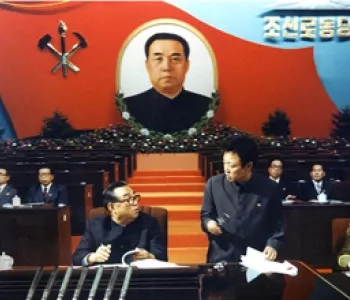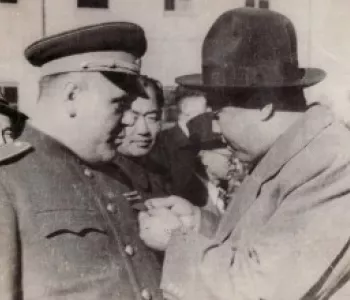d'Vinci

Ri, Sang-jo
In 1956, Ri Sang-jo encouraged the Soviets to intervene in North Korean politics.

Ri Sang-jo (리상조), also Romanized as Yi Sang Jo, established the “Joseon Youth Vanguard (조선 청년 선봉대)” in an effort to coordinate military activism against the Japanese forces in Korea and in China with the Chinese Communist forces. By 1937, Ri’s group became officially associated with the Chinese Communists, through which Ri was appointed to the post of Political Commissar within the Chinese First detachment force (제1지대 정치책임자). The group, as well as other militant groups, later joined the “Korean Liberation League (조선 독립연맹)” in 1942. By December 1942, the central leadership of the League dispatched Ri to Korea to conduct political agitation as well as perform intelligence gathering on Japanese military activities. In 1944 Ri returned to Manchuria to command the 3rd Detachment of the League (독립동맹 제3지대 지대장).
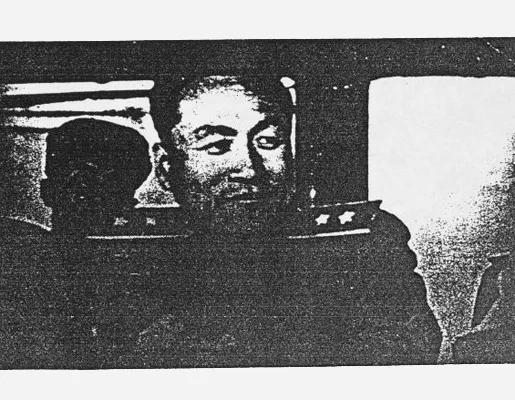
In 1946, Ri and the Liberation League to enter Korea. Until 1950, Ri first worked at the KWP Central Committee Organization Department as the Deputy Director (당중앙조직부 부부장), and later promoted to head the Department of the Central Party Cabinet (당중앙 간부부장). In 1950 Ri was appointed as the Vice-Chair of the Office of the KPA Chief of Staff in charge of reconnaissance and clandestine operations (인민군 총참모부 정찰사업전담한 부참모장). In 1953 Ri represented the DPRK in the armistice negotiations.
Following the War, he was appointed as the Ambassador Extraordinary and Plenipotentiary of the DPRK to the Soviet Union. Ri was a central figure in promoting changes to the North Korean post-war development strategy to improve the livelihood of the North Korean masses and in ending the emerging cult of personality surrounding Kim Il Sung. Ri met with Soviet officials in Moscow to encourage Soviet intervention in North Korean policies. Ri was removed from his post and recalled to Pyongyang in September 1956. Ri petitioned for political asylum to the Soviet Union and never returned to North Korea.
Following the War, he was appointed as the Ambassador Extraordinary and Plenipotentiary of the DPRK to the Soviet Union. Ri was a central figure in promoting changes to the North Korean post-war development strategy to improve the livelihood of the North Korean masses and in ending the emerging cult of personality surrounding Kim Il Sung. Ri met with Soviet officials in Moscow to encourage Soviet intervention in North Korean policies. Ri was removed from his post and recalled to Pyongyang in September 1956. Ri petitioned for political asylum to the Soviet Union and never returned to North Korea.

